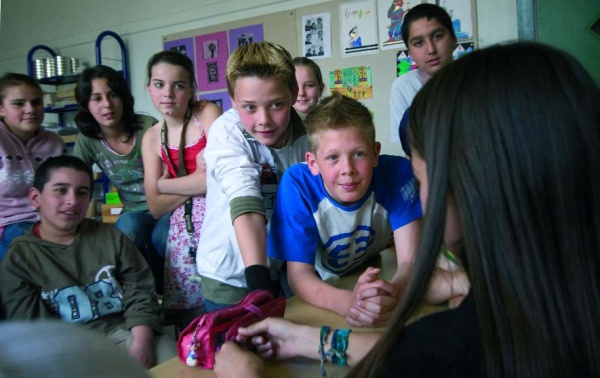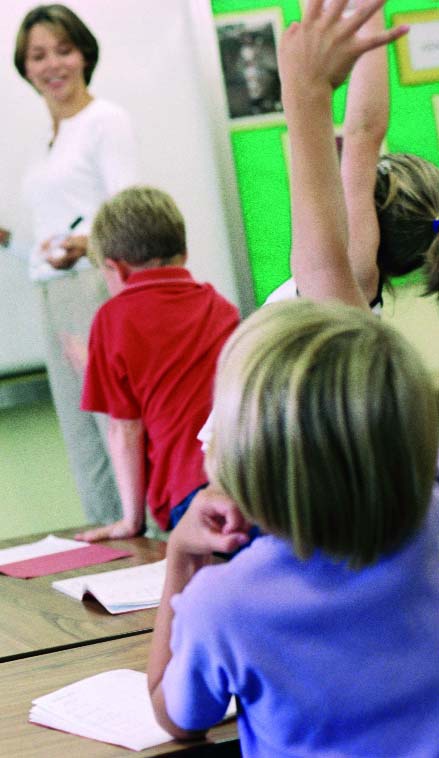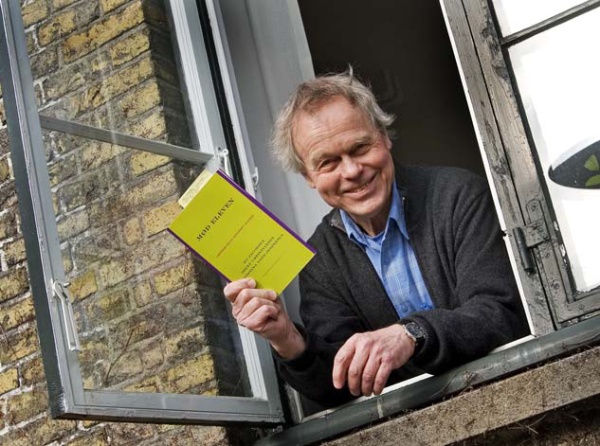
|

The School as a Local DemocracyA sound community in the school class is a precondition for democracyBesides teaching formal democratic and judicial processes, schools and educational institutions shall organize the education so that the students learn to practice democracy in their daily school life. The democratic dialogue is part of the education. Teachers shall instruct and guide the students in democratic behaviour so that the students learn to listen, form their own opinion, and respect others’ opinion and principles. The students’ council also provides an excellent opportunity to experience how democracy works in practice. As part of the Power Structure Examination (1999-2004), a survey of the Danish democracy, Bo Jacobsen, professor and dr. phil., and others, have examined the Danish Primary and Lower Secondary School as a democratic institution: Does the Primary and Lower Secondary School comply with the objectives? Does the school prepare the students in terms of active participation, joint responsibility, and rights and duties in a society based on democracy and personal freedom. The survey points out that the Primary and Lower Secondary School can be significantly better to comply with the objects clause. A sense of community in the school class is a precondition for democracy. Here the teacher plays an important role setting the example for social manners and the code of conduct ways of in relation to communication. The overall picture shows that the majority of the students experience a sense of community in the class (86 percent). However, 8 percent of the students experience that they stand outside the class community. This means that all classes have one or two students who feels that they are stand outside the class community. The survey also shows that there significant differences between classes. Some classes have a strong community and inconsiderable problems with mobbing. Other classes function badly, and have major problems with mobbing. As the survey concludes, choosing the right class can make a world of difference in relation to the later development of a child (Jacobsen, 2004:90). Thus the ability of the school and the teachers to create the foundation for sound class communities has huge significance in terms of spreading democracy in the school classes.

Interview
Good Classes Create Sound Democracies
The democracy in Danish school classes looks profoundly healthy, says Professor Bo Jacobsen. Still he emphasises
the importance of continuing to develop the democracy in the school system. A Democratic SchoolThe survey showed – contrasting what many so far has claimed – that classes who work well socially also constitute those classes where individual freedom of speech exists. Thus focussing on the individual and the community is not incompatible. On the contrary, it supplements each other. Bo Jacobsen elaborates: “Thus in order to strengthen democracy in the school class, it is essential that teachers open up for the possibility of the students to discuss, argue on, and make decisions on school issues. These decisions must not be pseudo-events where students discuss matters that have no significance to them, or matters where they have no real influence. It is essential that the students feel that their decisions make a difference.” According to Bo Jacobsen, there are many areas where the students can have influence. For example deciding on seat positions. Who sits next to whom? When do we change seats? The decisions can also concern school subjects. For example, when the class gets to decide the subject to write a paper on: “Obviously some matters are not open for student influence, but there is a free scope, and I urge teachers to make use of it,” says Bo Jacobsen. Free and Confident StudentsAccording to Bo Jacobsen, the efforts of students’ councils also form part of the democratic education. “The school council must work properly. It is up to the teachers to ensure that. However, the basic central processes of democracy take place in the school class. Here the students learn the basic rules of democracy, and how to interact in a democratic fashion. The teacher must bring this awareness into the class room.” Thus the teachers’ obligation to ensure that the school class functions well is a central precondition for teaching students how democracy works. “The main task of the class teacher is to ensure that the democratic community works, so that students feel free and confident enough to talk about issues that work well and their problems. It must be legitimate to speak one’s mind in the class room.” The Teachers Are Role ModelsThe social conditions that teachers establish for the class are important. But according to Bo Jacobsen, it is equally important that the teacher is aware of his or her role in the class. The teacher serves as a role model for students who see how they debate things, the way they interact with the students, and their general approach to their surroundings. Thus Bo Jacobsen emphasises the importance of having teachers who serve as democratic role models. “Overall, the task of any teacher is to contribute to the personal development of the students, to create sound relations between them, and not the least sound relations between teachers and students. Thus the democracy in the school is established by committed teachers who are aware of the fact that they are role models.”

|
|||||
|
To the top of the page |
